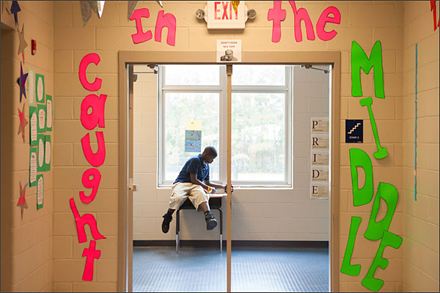Rethinking Discipline
Resource type: News
Education Week | [ View Original Source (opens in new window) ]
Zero-tolerance policies, which require out-of-school suspension or expulsion for certain inappropriate behaviors, have become the go-to disciplinary approach in many schools. But research suggests some downsides: Such punishments may not change students’ behavior and are often meted out unfairly.
These articles explore alternative approaches to suspension or expulsion.
Suspended In-School: Punished But Still Learning
Schools are using lunchtime detentions, Saturday schools, alternative schools, and other forms of in-school suspension to keep students on the academic track. (November 7, 2012, Education Week)
Classroom Management: Suspension Prevention
Some schools are cutting down on suspensions and office referrals by bolstering training in classroom management. (October 30, 2012, Education Week)
At S.C. School, Behavior Is One of the Basics
With a special class on behavior and a strategy known as Positive Behavioral Interventions and Supports, a Charleston middle school has found a way to reduce suspensions. (October 24, 2012,Education Week)
‘Restorative Practices’: Discipline But Different
As criticism of school suspension grows, some schools turn to techniques aimed at teaching students to right their wrongs. (October 16, 2012, Education Week)
To read the full edition of Rethinking School Discipline, register now, subscribe, or start a 2-week FREE trial for Education Week.
Education Week is an Atlantic grantee through the Children & Youth programme in the United States.
